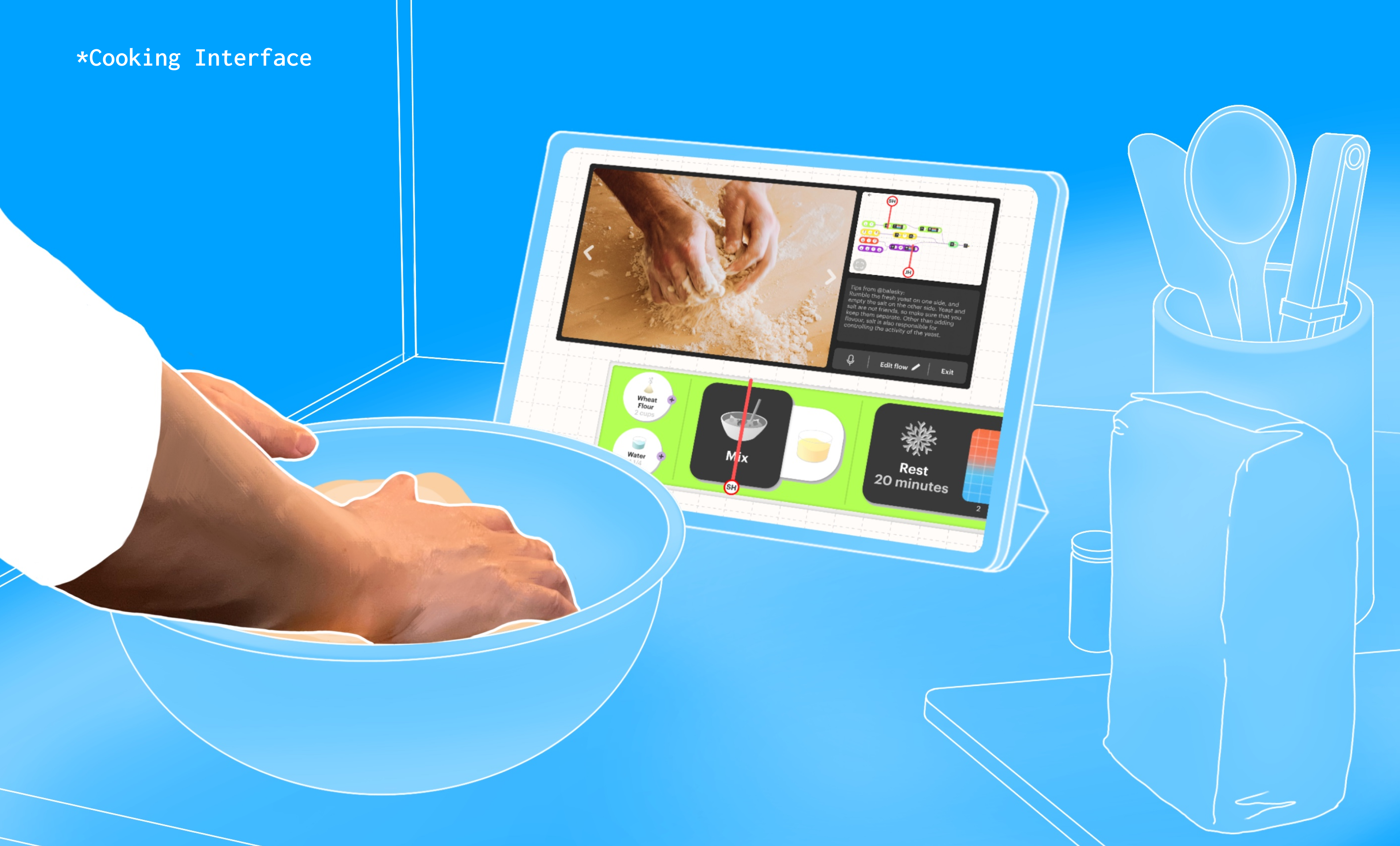Sandeep Hoonjan: Industrial Design Student 2019
Case Studies
Posted: 12/01/2021
Meal Engine
Industrial Design Student 2019
Sandeep Hoonjan
Royal College of Art / Service Design
I applied for the 1851 studentship on recommendation of one of my interviewers when applying to the Royal College of Art. He had mentioned a few students whose work I had admired, that had received the studentship over the past years. They told me about the community of academics and businesspeople within 1851, and I wanted to be part of this network even more so after meeting some of the commissioners, and the great Jenifer Hewett, the previous Senior Administrator.
During the past year I have been working on a food innovation project called Meal Engine, together with a team of scientists and designers also studying at Imperial and the RCA. It's a new system for recipe generation that targets food related issues such as health and environmentalism that are specific to the UK, and scalable to the world.
Despite a general awareness that food is an important factor of health, obesity is consistently one of the biggest health crises faced by the UK. In 2014/15, the NHS spent an estimated £6.1 billion on overweight and obesity-related ill-health, costing the wider society £27 billion annually. By 2050, this is projected to reach £9.7 billion and £49.9 billion, respectively.
So we asked the question: As the age of connectivity enters our kitchens, what does the next paradigm shift in cooking look like?
Food is at the center of some of the biggest global challenges associated with public health, climate change and ecological damage. However, during shopping, cooking, and eating, the underlying complex and interconnected food systems are hidden to the average consumer. Meal Engine is a new digital cooking tool for home cooks that utilizes the internet of information to support healthy and sustainable food choices. It increases transparency of the current food system and ingredients to inform healthier and more sustainable decisions. Meal Engine is designed as a visual programming interface for recipe creation that leverages access to data from external and user sources. Meal Engine enables adaptivity and interconnectivity of recipes. The complexity of any cooking process is broken down into sets of nodes in a visual flow that is both interactive and simpler to read than text recipes. Meal Engine facilitates a creative synergy between the human and computer system. The user interface encourages creative exploration, while giving predictive and prescriptive feedback on health and food sustainability. For example, recipes can easily be adapted for personal dietary requirements and checked for ingredient seasonality and carbon emissions; food waste can be reduced by proactive suggestions for ingredient usage and serving size adjustments; or diets can temporarily be synchronized with fitness routines or medication.
We believe that Meal Engine has potential to become the status-quo for connected food systems in the future. It’s logic can accept data from countless existing databases, such as nutrition, seasonal availability, carbon footprint, packaging, etc. to shape a healthier and more sustainable food ecosystem.

